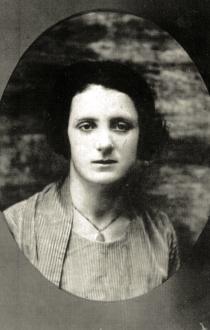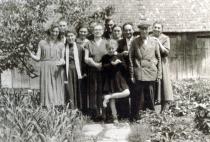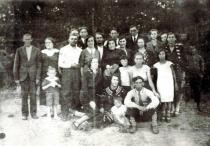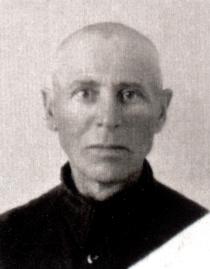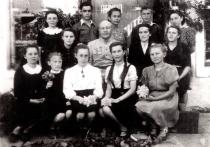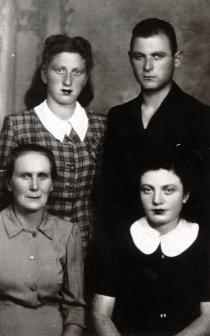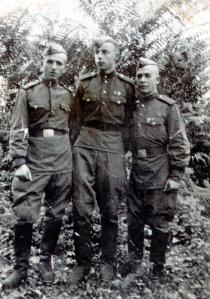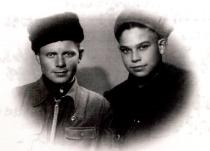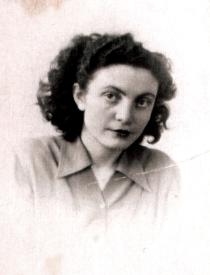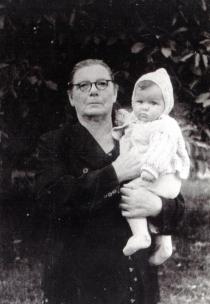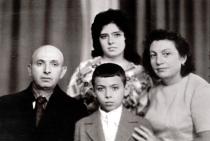This is a picture of me, taken before my wedding in 1954 in Chernovtsy.
When I was in my final year at the Pedagogical Institute in 1953 I met my future husband, Olter Roizman. We got married in 1954. We had a wedding party at my parents' home in Yedintsy. There were 60 guests at the party. We had a chuppah and there was a rabbi from the synagogue. He conducted the wedding ritual, and then we sipped wine from a wine glass. Afterwards we broke the glass according to the tradition. Of course, the authorities didn't approve of worship, but Yedintsy was a small town, far from Chernovtsy where we lived and worked. Old traditions and rules were still in force in the town and the authorities were loyal in that regard. It wouldn't have been possible to have such a wedding arranged in Chernovtsy - we would have been reprimanded or even fired.
Upon my graduation in 1954 I got a job assignment in a Moldavian village. [The interviewee is referring to a mandatory job assignment.] I knew Moldavian and Romanian. I got married in the middle of my academic year and I returned to work after the wedding. The director of the school wanted me to stay until the end of the academic year. Olter stayed in Chernovtsy. I joined him after the academic year was over. Olter got a job at a plant. He was an apprentice and later became a worker.
We didn't have a place to live and settled down in my aunt's kitchen. I couldn't find work. Besides I had health problems. I had miscarriages and the doctors told me that this was due to the years that I spent in the ghetto. My first baby was stillborn. And then, in 1959, I finally had a baby girl. I named her Dina after my beloved grandmother. I had to stay at home to look after the baby.
In 1957 my husband received a plot of land in the center of town. It was in the same street where my aunt lived. We bought construction material and built a small house. It took us about two years, but the house was completed before our daughter was born.
My husband and I observed Jewish traditions, but my husband had to work on Saturdays because it was an ordinary working day. However, we celebrated all other Jewish holidays. We followed all fasting requirements and went to the synagogue on Jewish holidays. I cooked traditional Jewish food. We had matzah, gefilte fish and chicken on Pesach. Matzah was baked in private houses in Chernovtsy: Jews whispered the addresses of these houses to one another and secretly brought flour to these houses at night to pick up matzah the next day. If the authorities had found out the addresses of these houses they would have closed them and arrested their owners, but Jews kept this knowledge to themselves and nobody revealed it to the authorities. My aunt taught me how to bake. My colleagues respected my traditions. Only official authorities were fighting against religion; common people always showed understanding. We weren't used to Soviet holidays, but we joined small celebrations at work.

